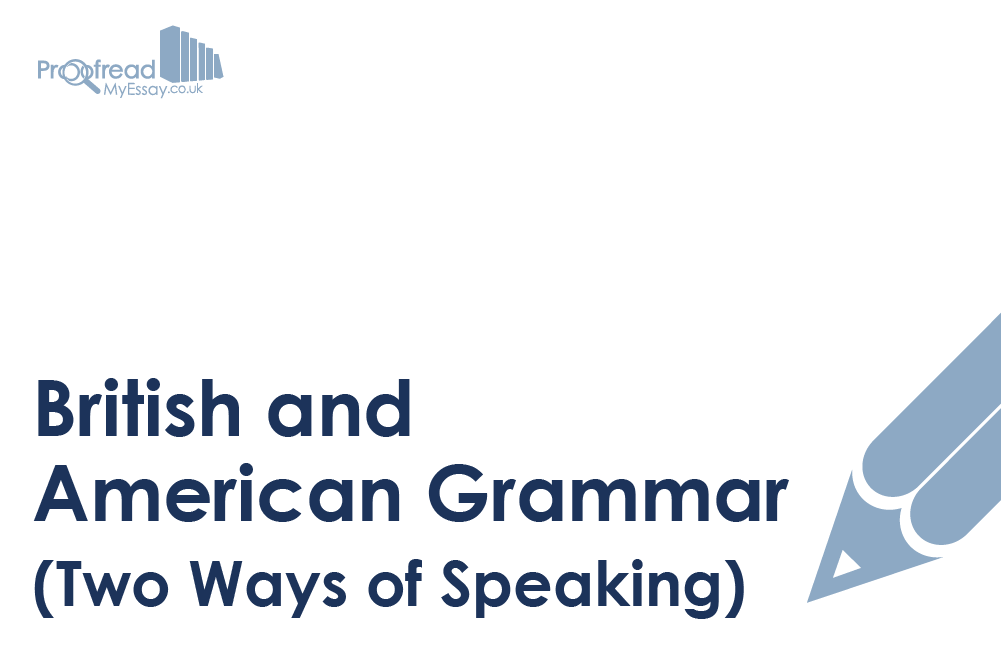We’ve previously looked at some of the spelling differences between British and American English. But the grammatical differences between us and our American cousins are also worth considering. In what follows, we set out a few prominent examples.
Present Perfect vs. Past Simple
When describing a past event which has consequences in the present, British English tends to use the present perfect tense (‘has/have’ plus a present participle verb):
British English: Dan has drunk too much, so he feels a little tender.
This is less common in American English, where the simple past tense is often used instead:
American English: Dan drank too much, so he feels a little tender.
![The word 'hangover' is the same on both sides of the Atlantic [Photo: Mislav Marohnić]](/wp-content/uploads/2019/10/5233928419_0d00a1780f_z.jpg)
The same is true when a sentence contains a past-time adverb, like ‘just’ or ‘already’:
British English: Dan has already taken a painkiller for his headache.
American English: Dan already took a painkiller for his headache.
Another thing to look out for when using the past tense is that British and American English differ slightly when it comes to irregular verbs. For instance, ‘dove’ is accepted as the simple past tense of ‘dive’ in American English, but only ‘dived’ is used in the UK.
Preposition Switching
There are also differences between how British and American English use prepositions. For instance, while a Brit might have a barbecue ‘at the weekend’, an American would probably have theirs ‘on the weekend’.
Other prepositions that sometimes get switched when we cross the Atlantic include ‘at’/’in’ (British/American English):
I’m studying maths at university. / I’m studying math in college.
Find this useful?
Subscribe to our newsletter and get writing tips from our editors straight to your inbox.
‘For’/’in’:
I haven’t been there for years! / I haven’t been there in years!
And ‘to’/’through’:
I’m working from Monday to Friday. / I’m working from Monday through Friday.
Collective Nouns
A collective noun refers to a group of things. In British English, these can be followed by either a singular or plural verb depending on whether the group is considered as a single entity or a collection of individuals.
For example, despite being a single football club, we can talk about ‘Norwich City’ as if it referred to the various individuals at the club.
As such, in British English, we could say either ‘Norwich City is really struggling this season’ or ‘Norwich City are really struggling this season’.
In American English, however, collective nouns can only be followed by a singular verb. It is also unlikely that most Americans have heard of ‘Norwich City Football Club’.

Does It Really Matter?
British and American are very similar in terms of grammar compared to spelling or vocabulary, so many people ignore the differences. And the lines between American and British English grammar are becoming increasingly blurred.
However, if writing for a popular audience, adopting the same grammatical patterns as your readers will help ensure your work reads smoothly. As such, if writing for an American audience, you might want to try using the conventions explained above!



